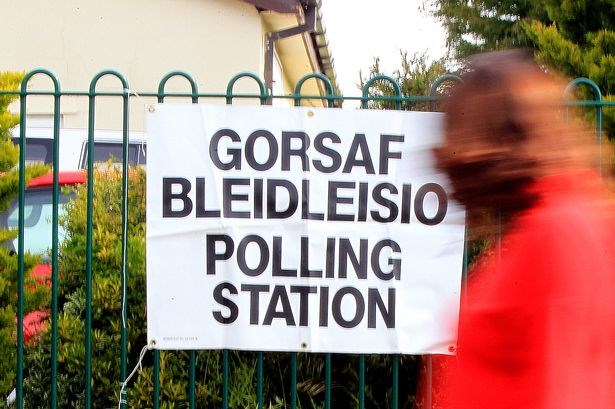
Young people are interested in voting – new research shows
Mae gan bobl ifanc ddiddordeb mewn pleidleisio, yn ôl ymchwil newydd
Young people and foreign citizens are interested in voting in local government elections in Wales, and are more interested than some groups of adults who are already enfranchised, new research published today shows.
The research on renewing democratic engagement was commissioned by the Welsh Government to inform work in taking forward the implementation of changes and proposed changes to who can vote in Senedd Cymru and local council elections in Wales.
The Welsh Government, through its Local Government and Elections (Wales) Bill, is extending the right to vote at local elections to 16 and 17 year olds and all foreign citizens legally resident in Wales.
Those groups will also have the right to vote in Senedd elections from 2021, under the Senedd and Elections (Wales) Act 2020.
The research shows:
- A lack of knowledge and general disillusionment with politics were key barriers to engagement. Politics in Wales was thought to have a low profile, with some participants remarking how they did not encounter the subject in the media;
- Some non-EU/non-Commonwealth participants were frustrated that they could not vote in any elections in Wales. These groups of participants were, therefore, very receptive to the Welsh Government’s plan to give non-Commonwealth and non-EU citizens living in Wales the right to vote in local council elections;
- Participants tended to be unclear how to raise an issue about their local community. There appeared to be a lack of understanding on how to raise an issue, give an opinion or change anything. Online petition-signing was fairly common and some had experience of volunteering, suggesting the potential exists for greater engagement.
The research will be used by the Welsh Government to inform strategies for engaging with newly enfranchised groups of voters – and those who tend to be politically disengaged – about their democratic rights and promote voter participation.
To begin addressing the issues identified, the Welsh Government has committed £800,000 to support new and existing voters in understanding their democratic rights and engaging with the democratic processes.
This work will include developing resources for use with young people in schools, and outside of the school setting; and a specific communication campaign to encourage newly enfranchised voters to register and take part in the 2021 Senedd and the 2022 local government elections.
Local Government Minister, Julie James said:
“The Welsh Government is committed to doing everything it can to encourage people in Wales to play a full and active role in our democracy.
“The findings of this research will inform our on-going work to ensure people of all ages and backgrounds feel part of Welsh society.
“We want to ensure people understand how and want to take part in our democracy by for example, voting, standing as an elected representative, starting a petition or being a community representative.”
The research is available here: https://gov.wales/renewing-democratic-engagement-exploratory-research
Notes to editors
Beaufort Research was commissioned to carry out in-depth qualitative research with members of the public to:
- Explore attitudes towards voting in elections;
- Explore knowledge and understanding of politics in Wales and how represented people feel;
- Collect views and experiences of wider civic engagement; and
- Identify effective methods of engagement with different groups of voters.
The sample consisted of 148 participants, covering 14-17 year olds, adults from groups less likely to vote,, foreign citizens and stakeholders. The research used a mix of focus groups, mini-groups, paired depth interviews, face-to-face depth interviews and phone depth interviews.
The research was carried out between July and November 2019 in Aberystwyth, Ammanford, Caernarfon, Cardiff, Newtown, Swansea, Torfaen, Welshpool and Wrexham.
